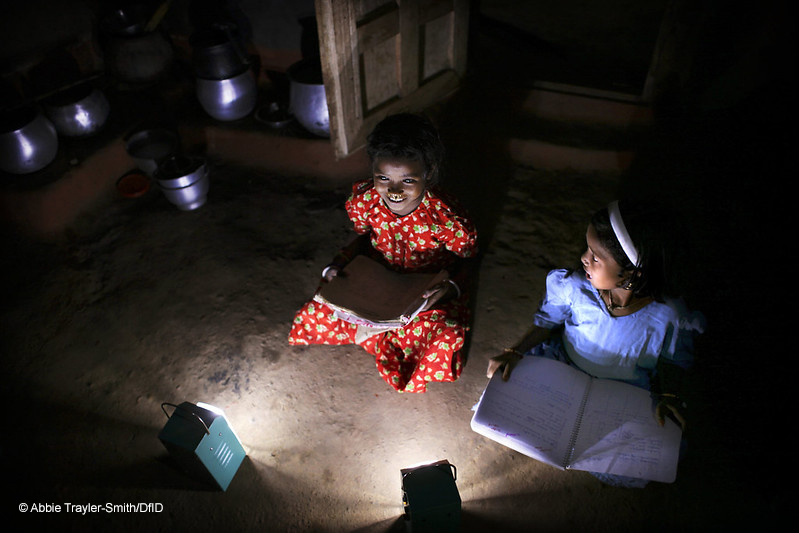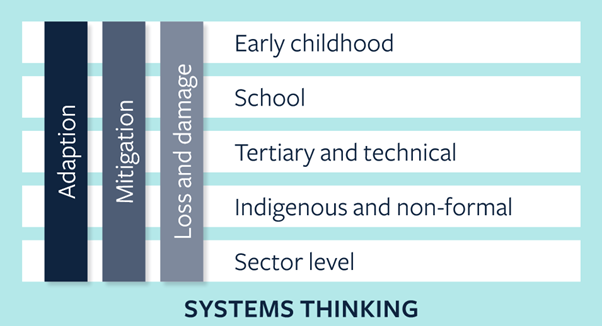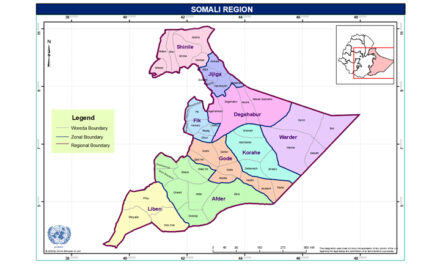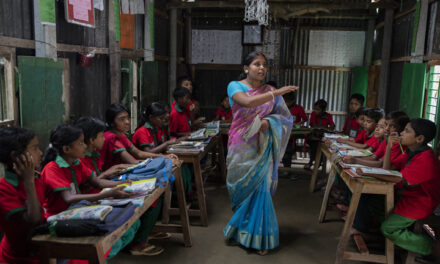This blog was written by Akanksha Bapna, Nicholas Simpson and Sarah Colenbrander, Climate and Sustainability team at ODI, London[i]
Climate change and education nexus
Climate change poses a significant threat to education systems around the world. It disrupts education directly through extreme weather events and environmental degradation, and indirectly through its impacts on health, food security, and migration. Conversely, education plays a vital role in mitigating climate change and adapting to its effects. The relationship between climate change and education is complex, with a multitude of social, economic, political, and biogeochemical factors influencing cause-and-effect pathways. This complexity is further amplified by unpredictable outcomes, mediating factors, and feedback loops.
Impacts of climate change on education
Climate change can disrupt education in a number of ways, including:
- Decreased access and disruption of learning: Extreme weather events, such as floods and heat waves, can damage schools and infrastructure, limit attendance, and disrupt teaching and learning processes. Teacher absences due to climate-related factors can further exacerbate these disruptions.
- Reduced learning capacity: Climate change can negatively impact learning capacity by causing malnutrition due to disruptions in food supply chains. Extreme heat can also hinder cognitive development.
- Loss of indigenous and local knowledge (IKLK): Climate change can lead to the loss of IKLK, which is vital for adapting to local environmental conditions. This loss can be caused by displacement of communities due to climate-related events or by the degradation of ecosystems that hold cultural significance.
Impacts of climate change on education
- Climate change mitigation: Education can empower people to adopt behaviours and practices that mitigate climate change. This includes fostering knowledge and skills related to sustainable resource management, clean energy technologies, and climate-resilient agricultural practices.
- Climate change adaptation: Education can equip individuals with the knowledge, skills, and values needed to adapt to the impacts of climate change. This includes disaster preparedness, risk reduction strategies, and sustainable living practices.
The Climate Change Education Research Framework
The Climate Change Education Research Framework (CERF) is designed to systematically examine the complex relationship between climate change and education. CERF emphasises the need for systems thinking to understand the interconnectedness of these issues. CERF also highlights the importance of understanding the causal relationships between climate change and education across various contexts. In addition, the CERF exposes the intersection between climate change and education through outlining:
- Multiple education levels: The framework encompasses all education levels, from early childhood education to higher education, as well as formal and informal education settings.
- Climate change themes: CERF integrates key climate change themes, including mitigation, adaptation, and loss and damage, into the education levels.
By providing a robust research architecture, CERF can detangle intricate interactions between climate change and education, inform development of effective educational policies and interventions, achieve better education and climate change outcomes.
[i] The authors of CERF have used AI to generate parts of the summary for this blog. They note that this was helpful for key highlights but not accurate so needed substantial re-writing and editing.





